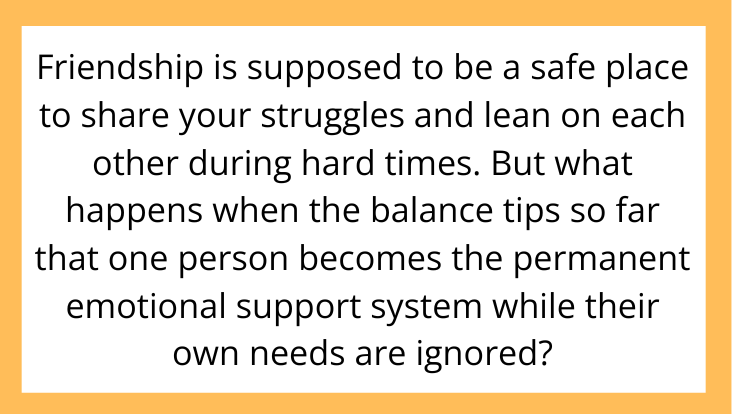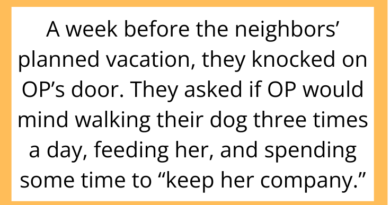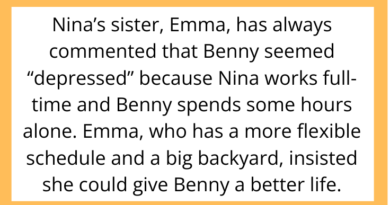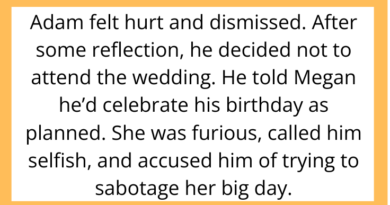AITAH for Telling My Best Friend I’m Tired of Being Their Emotional Dumping Ground?
Friendship is supposed to be a safe place to share your struggles and lean on each other during hard times. But what happens when the balance tips so far that one person becomes the permanent emotional support system while their own needs are ignored?
A recent post on r/AITAH sparked a heated debate about this very question. The original poster (OP) shared their experience of feeling drained and overwhelmed after months of listening to their best friend’s problems without reciprocation or respect for boundaries.
When OP finally spoke up and said they were tired of always being the shoulder to cry on, the friend called them selfish and unsupportive. So—does setting limits on emotional labor make you a bad friend?
Let’s look closer at why this issue resonates with so many people.
The Scenario: When Helping Turns Into a One-Way Street
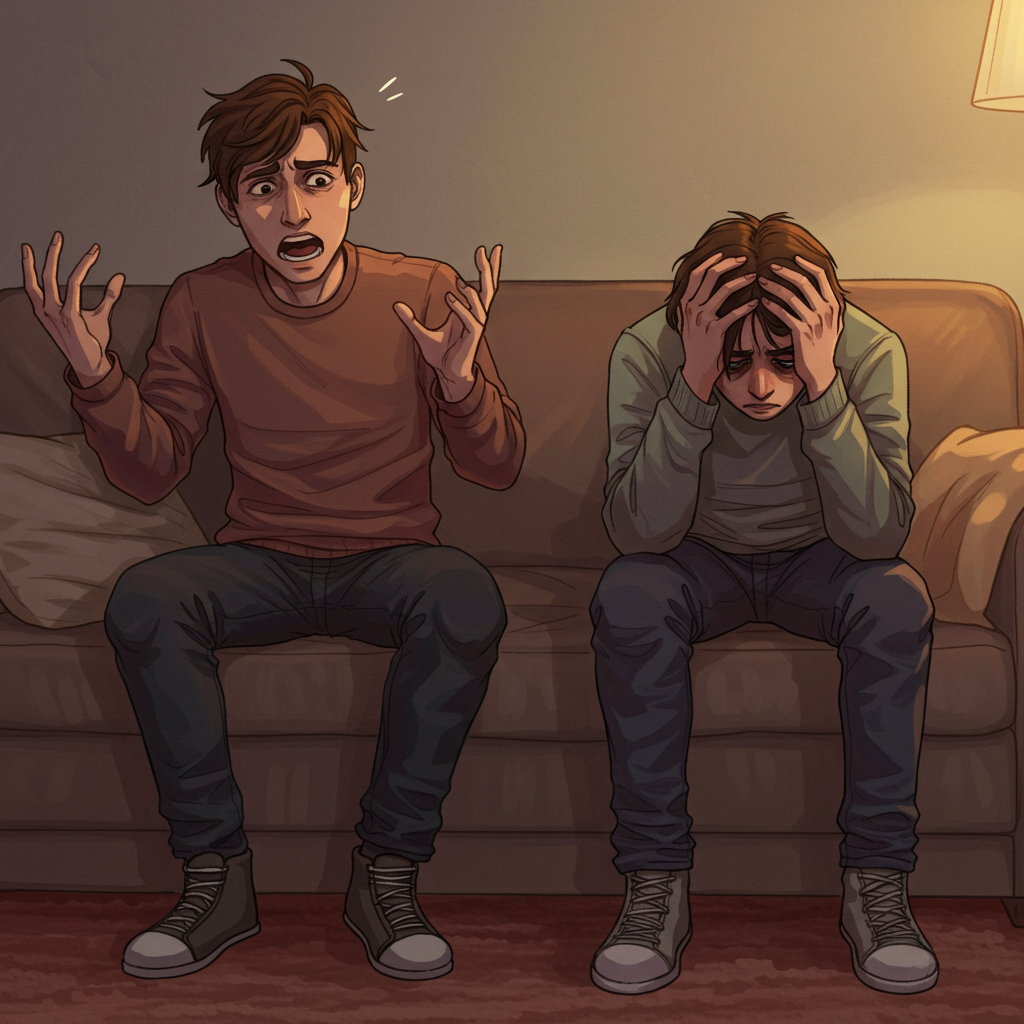
According to OP, their friend was going through a rough patch—breakups, job stress, family drama—and leaned heavily on them for daily support. At first, OP was glad to help. But as the months went on, they noticed a pattern:
-
The friend rarely asked about OP’s own life.
-
Every conversation turned into venting.
-
Attempts to set boundaries were met with guilt-tripping.
Eventually, OP reached an emotional breaking point and said, “I can’t keep doing this. I care about you, but I need a break.”
The friend’s response? Anger, accusations, and claims that OP was abandoning them when they needed help the most.
Why Emotional Labor Can Be Exhausting
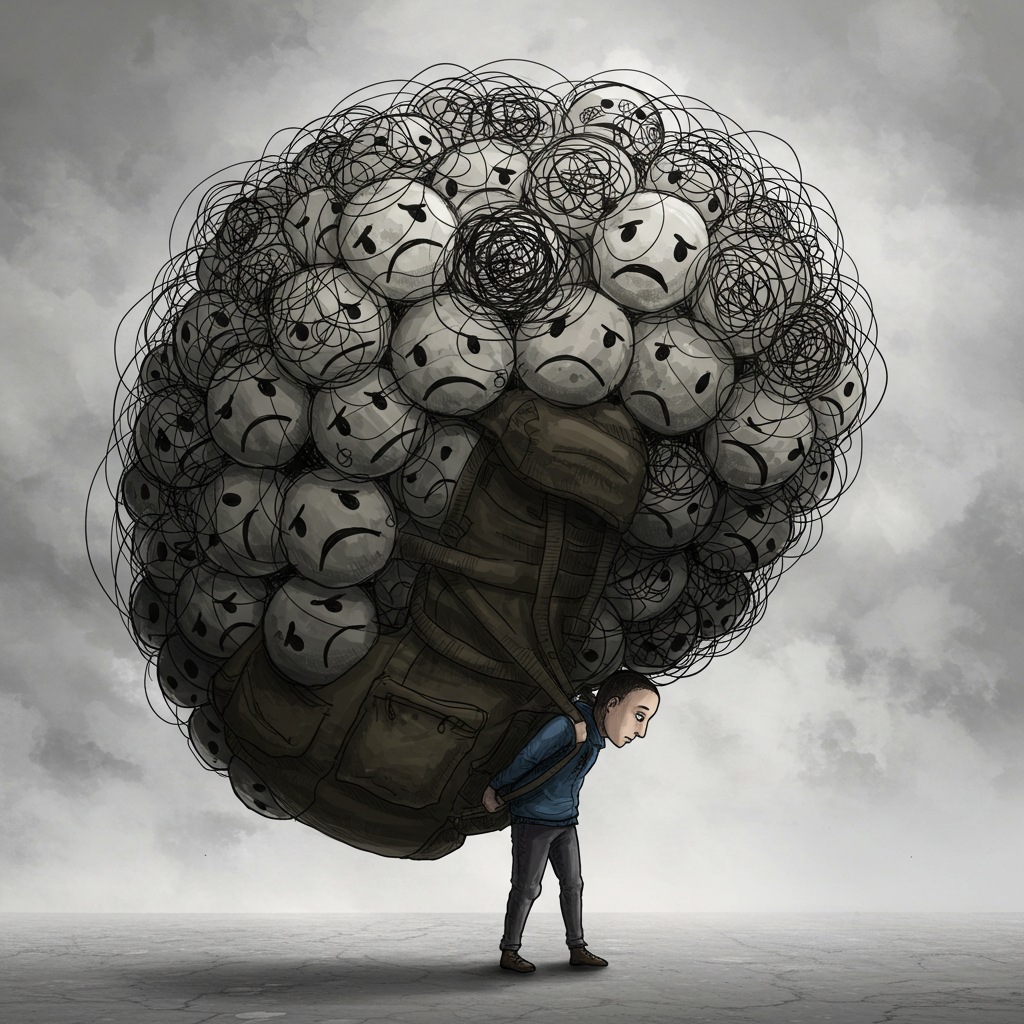
Many people underestimate the toll of being someone’s constant source of support. Here’s why it can feel overwhelming:
-
Empathy fatigue is real: Listening to someone else’s struggles every day can drain your emotional reserves.
-
Boundaries matter: Healthy relationships need give-and-take, not just one person carrying all the weight.
-
Self-care isn’t selfish: Ignoring your own needs to help others often leads to burnout and resentment.
It’s important to remember that you are not obligated to sacrifice your mental health indefinitely, no matter how much you care about someone.
How to Set Boundaries Without Ending the Friendship
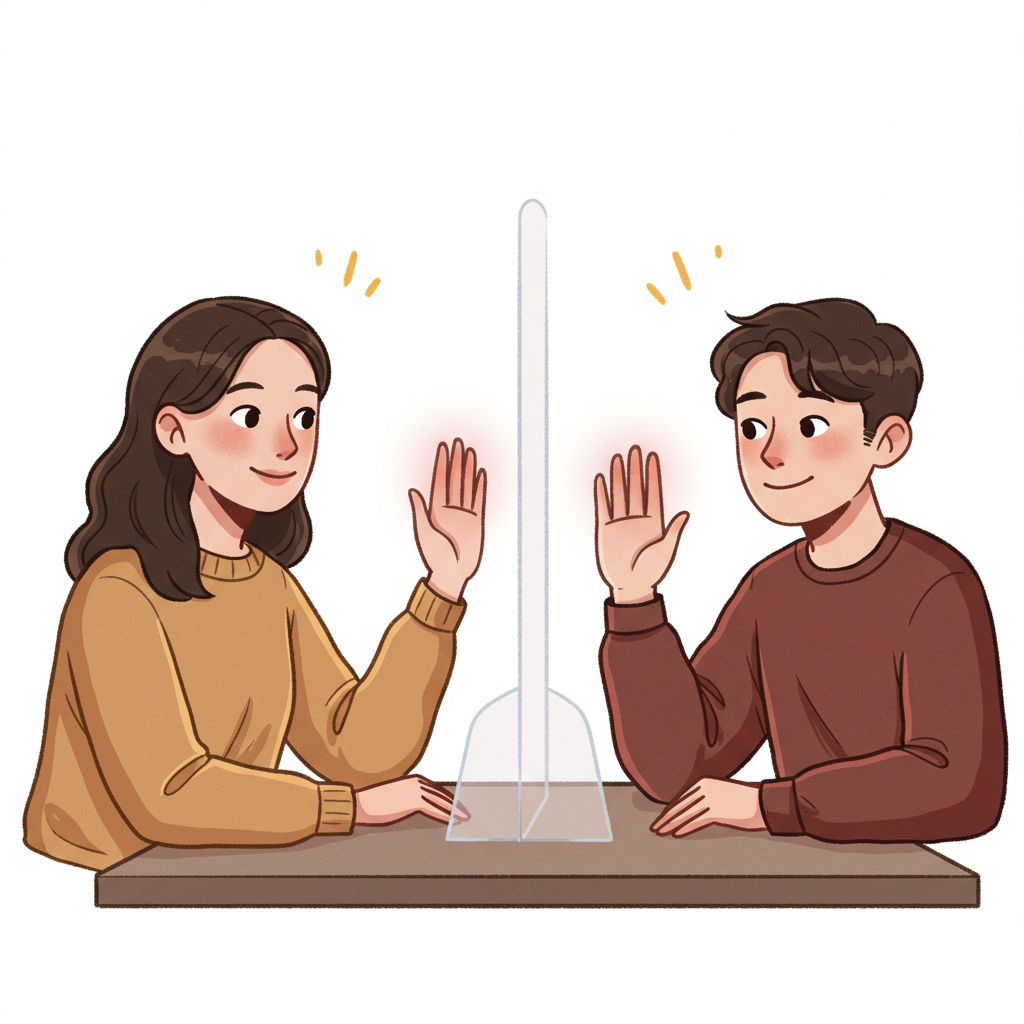
If you relate to OP’s situation, you’re not alone. Here are some ways to protect your energy while still showing compassion:
-
Communicate early and honestly: Let your friend know how you’re feeling before resentment builds up.
-
Offer alternatives: Suggest they consider a therapist or additional support network instead of relying solely on you.
-
Schedule check-ins: Agree on times when you’re available to talk, rather than being on call 24/7.
-
Be firm but kind: Boundaries are about maintaining the relationship, not rejecting it.
The key is to focus on your needs without shaming your friend for theirs.
Why Some People React Poorly to Boundaries
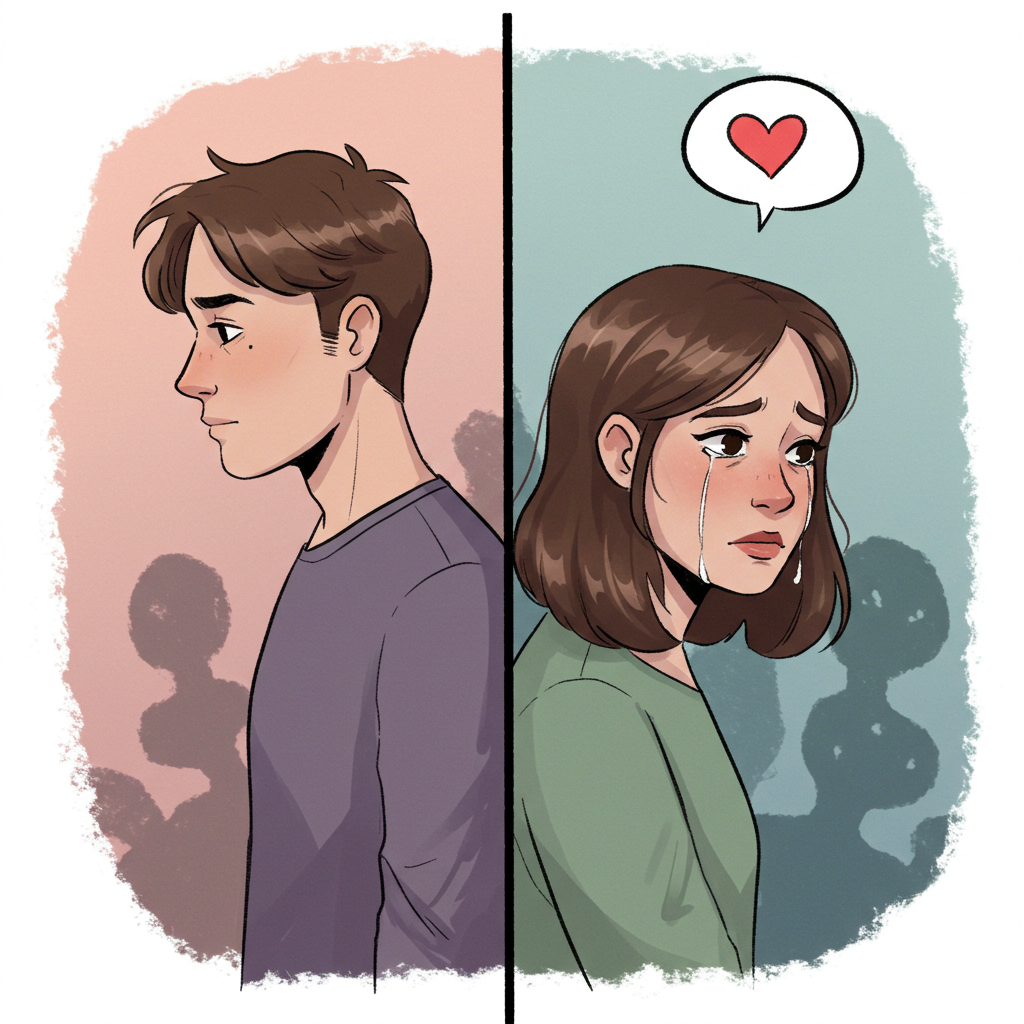
When you set limits with someone who is struggling, their initial reaction might be hurt or anger. Often, this comes from fear:
-
Fear of losing support.
-
Fear of facing problems alone.
-
Fear of rejection.
Understanding these emotions can help you stay compassionate while still protecting yourself.
The Internet Weighs In
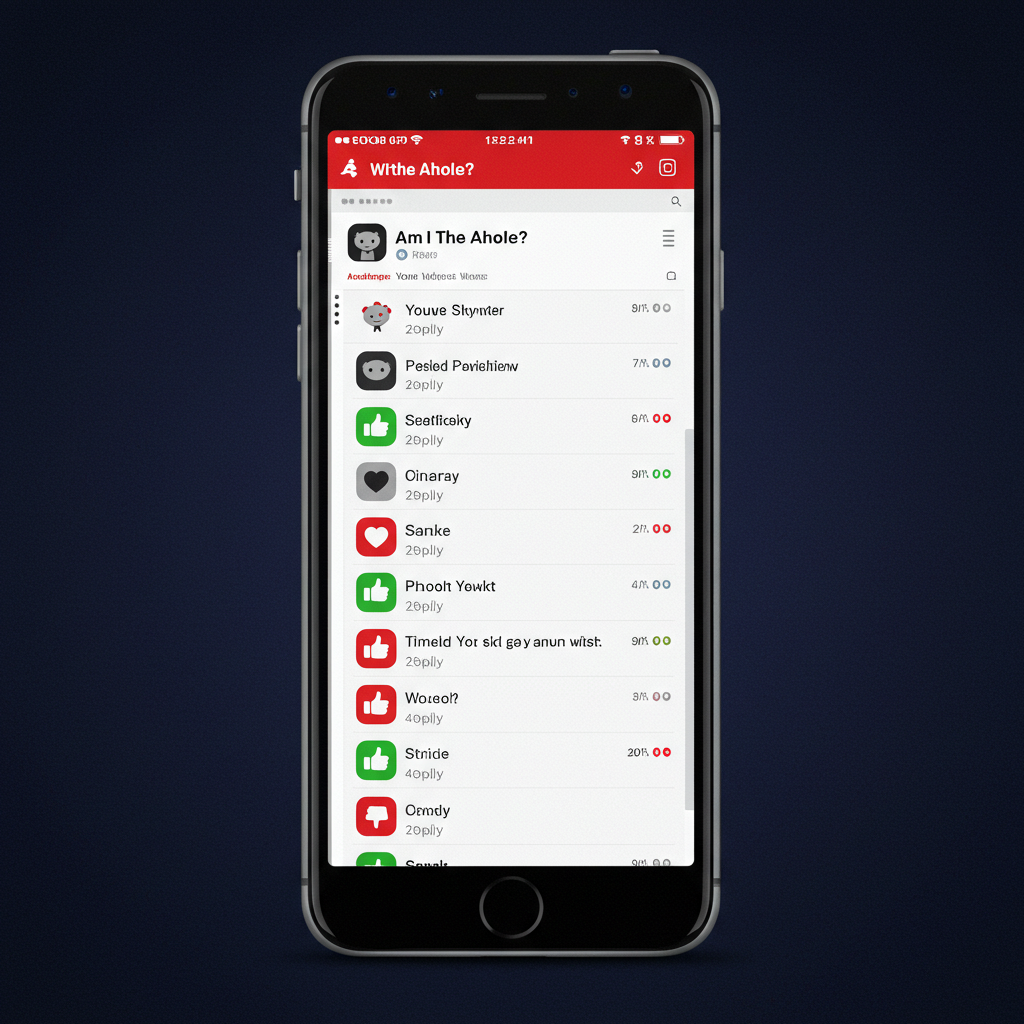
On Reddit, responses to this AITAH post were mixed. Many people validated OP’s exhaustion and applauded their courage to speak up. Others empathized with the friend’s struggles but agreed that constant venting without respect for the listener’s well-being isn’t fair.
The consensus was that OP was not wrong for needing space—only that the delivery of the message needed care and clarity.
Final Thoughts: You Deserve Support, Too
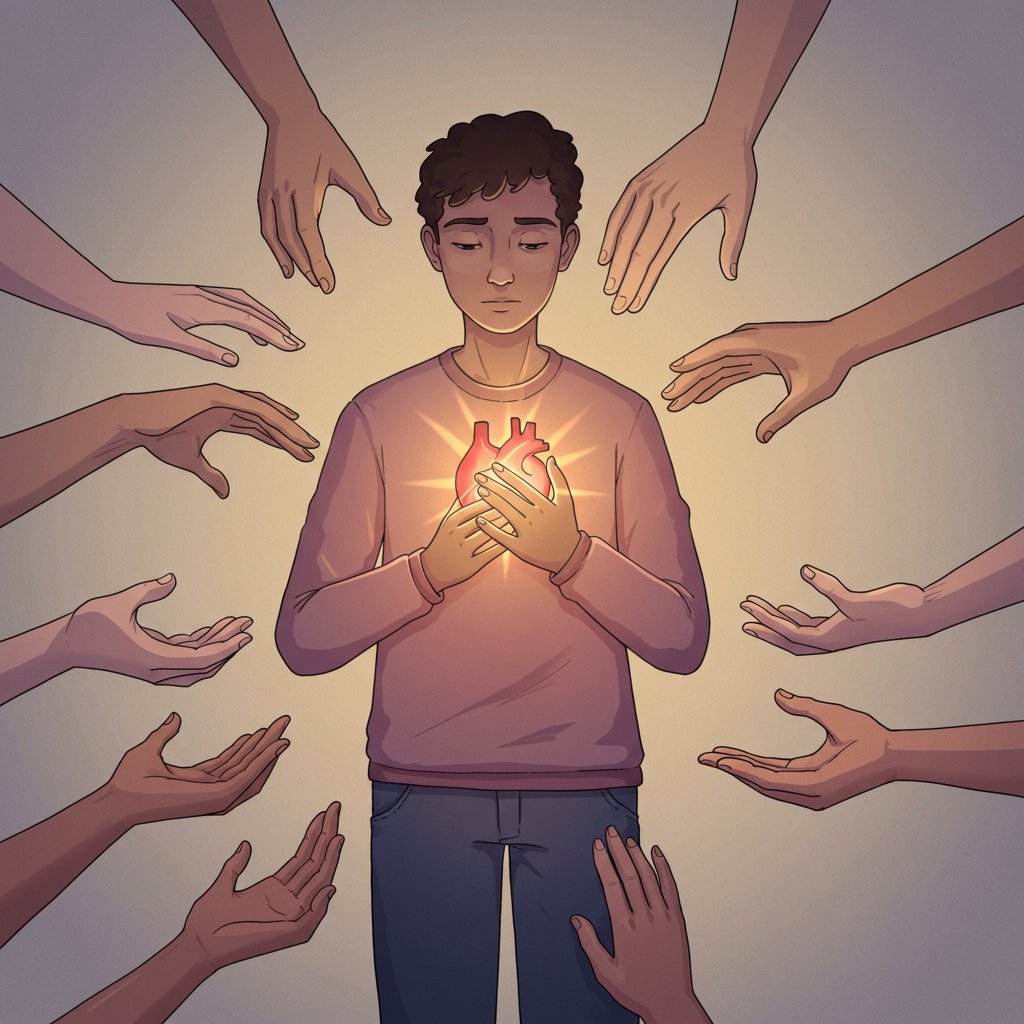
Telling a friend you’re tired of being their emotional dumping ground doesn’t make you a bad person. It makes you human. No relationship should demand endless sacrifice without consideration of both people’s needs.
If you find yourself in a similar situation, remember:
-
Your feelings are valid.
-
You can care about someone and still set boundaries.
-
Healthy friendships grow stronger when both people’s needs are respected.
